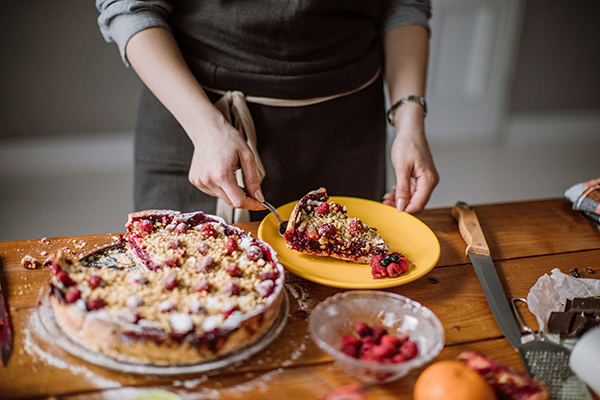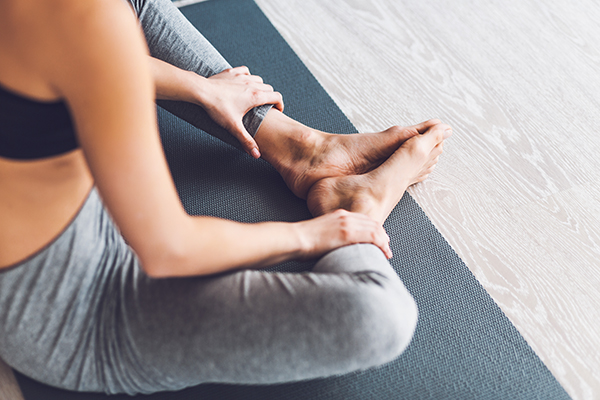How to Stick to Your Nutrition Goals During the Holidays

The holidays are upon us, which means not only stay-cations and zooming with family and friends, but also treats, sweets, and much more imbibing.
Staying healthy over the holidays can be tricky for a variety of reasons — your routine is already gets thrown out of whack due to holiday parties (virtual or in-person) and time off, leading to lack of sleep and missed workouts.
Here are a few reasons why nutrition is important during the holidays.
Nutrition Can Impact Your Immune System
During the holiday season, most people are getting enough calories.
But do those calories come from a healthy balanced diet that includes a wide variety of fruit, vegetables, and other nutrient-dense foods?
For many folks, the answer may be no.
According to a study from Harvard, “a diet lacking in one or more nutrients can impair the production and activity of immune cells and antibodies.”
The NIH says, “Poor nutrition can compromise immune function and increase infection risk.”

Consuming Alcohol May Impact Sleep
Even though some of us may get the luxury of vacation between Christmas and New Year’s, there’s a good chance you’re not catching enough Zs.
Drinking alcohol, which is often increased during the holiday season, is believed to result in lower quality sleep.
And according to the Mayo Clinic, “Long-term lack of sleep also increases your risk of obesity, diabetes, and heart and blood vessel (cardiovascular) disease.”
But there’s no reason you can’t end the year on a good note.
“Eating healthy doesn’t mean that you have to eat perfectly,” says Quyen Vu, M.S., R.D. “Of course, we want to include mostly nourishing foods, but some foods nourish the body, and others nourish the soul — there’s a balance to it.”
Read on to find out how to dial in your nutritional self-care game during the holidays.
1. Eat when you’re hungry and stop when you’re full
Instead of zoning out in front of the latest Netflix holiday flick, focus on what you are eating and who you are with, whether it’s in person or a virtual space.
Focus on how you feel before you start eating so that you can know precisely when you are full and need to stop.
And don’t forget — you can always have leftovers if you aren’t done with that holiday ham or the last of those sugar cookies.
2. Cook in-season produce
Aim to add in a few fresh and timely ingredients to your regular holiday staples. As Vu says, in-season veggies and fruit will have the best taste, quality, and nutritional content.
Get creative to see what in-season ingredients you can add to your dishes, like this Five-Minute Sweet Potato Soup.

3. Find a balance
Vu recommends eating foods that you crave and not letting one food rule over your thoughts and action.
Research shows that a non-dieting approach to eating healthy results in improvements in eating and weight-related behaviors, so say yes to balance and no to feeling guilty.
Rather than swearing off sugar, which will only leave you thinking about sweets, Vu recommends making sure you’re not ravenous before you have dessert.
Eat a balanced meal before so that you won’t overindulge. When eating dessert, really savor the flavor and experience it, instead of shoveling it down.
Be present and enjoy your sweet treat.
4. Alternate between alcohol and water
“Alcohol can increase appetite, so drinking water between drinks is important,” says Ben Walker, a certified personal trainer, founder of Anywhere Fitness, and a Precision Nutrition-certified coach. “Not only does it sober you up, but it also suppresses hunger and helps you avoid the temptation to eat more calories later.”
5. Learn to Say “No”
This might be easier this year than others, especially if you’re celebrating the holidays over zoom, but learning to decline a second helping politely is a necessary skill.
“It’s important to learn how to decline people for foods and snacks in the evening politely,” says Walker. “It’s important to not feel guilty passing up on more calories.”
Like Vu says, when you are full, stop eating, and don’t let anyone pressure you into that extra slice of pie.

6. Plan Ahead
The holidays can already be a stressful time, so make a plan to keep track of your nutritional well-being, recommends BODi trainer Jericho McMatthews.
Research shows that even though you think that extra cookie will make you feel better during a stressful time, it doesn’t.
A study in the journal of Psychoneuroendocrinology found that by replacing unhealthy comfort foods with fruits and vegetables, women can potentially improve the quality of their diet without sacrificing any of the stress-reducing benefits.
Plan to exercise on the mornings of these big holiday events, eat regular meals before the main event, and get plenty of rest.
Want to learn more? Head over to BODi and find out how BODi’s at-home workouts, nutrition programs, and online community work together to help you reach your health and fitness goals.
